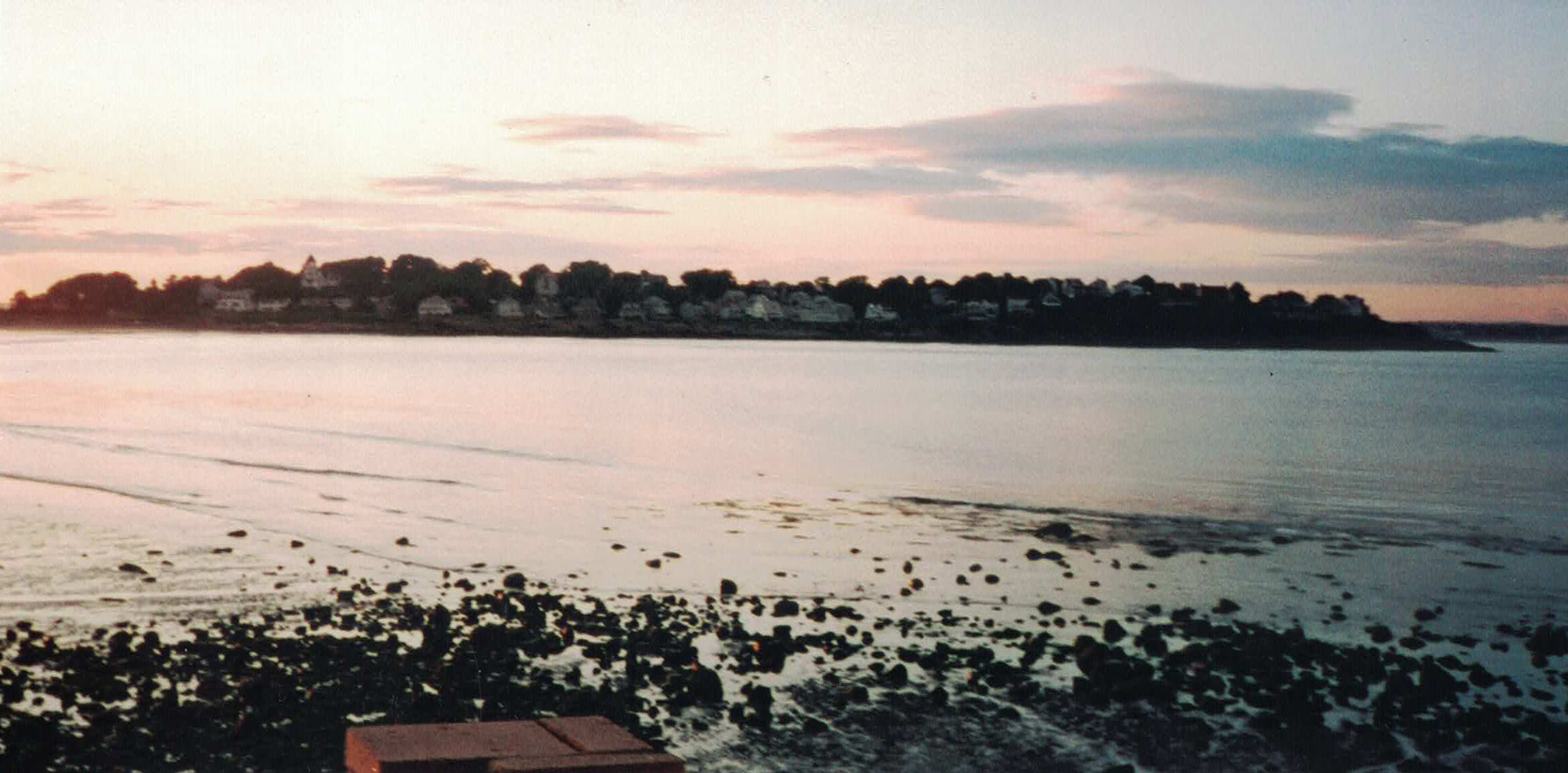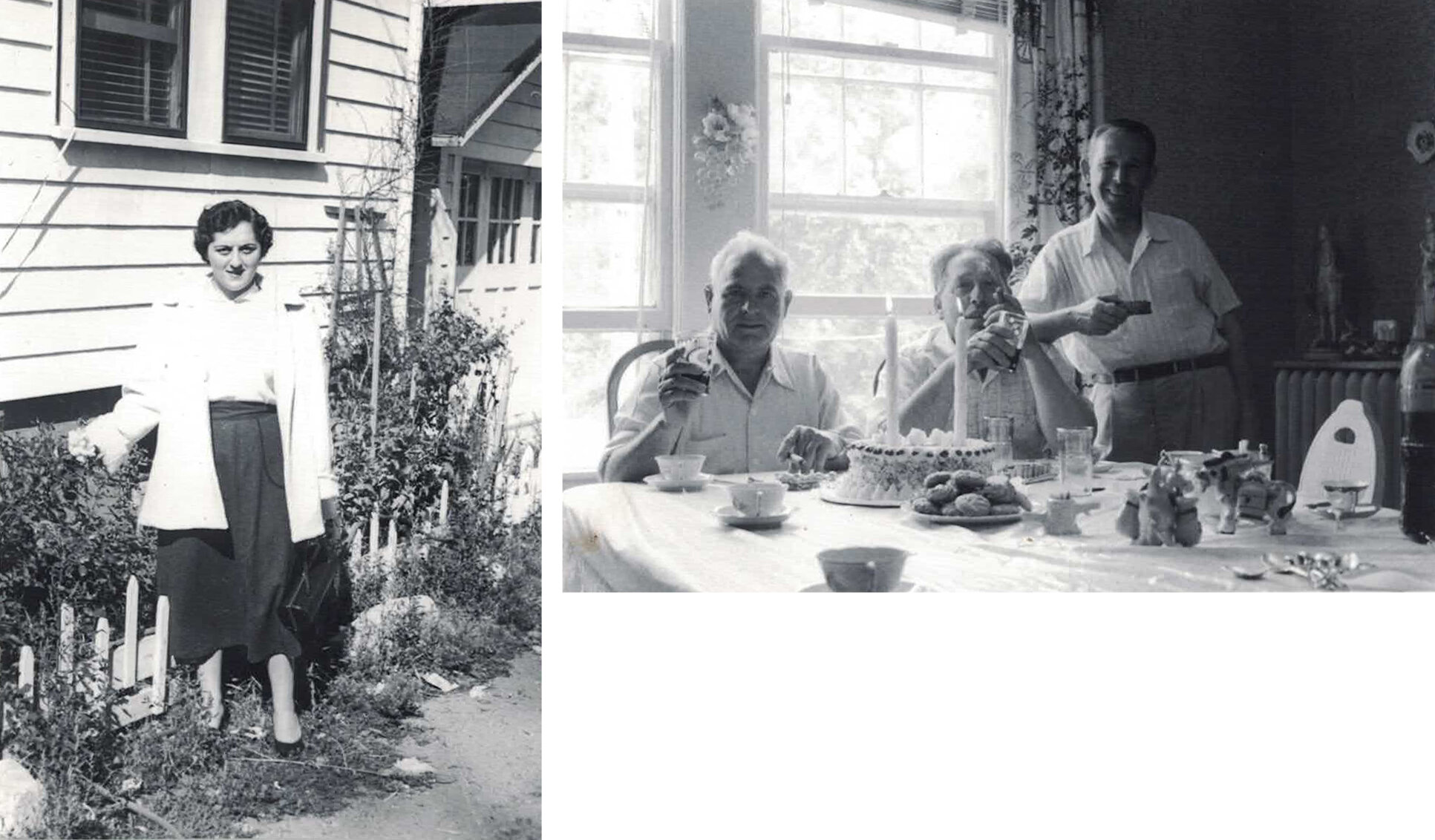From a Place
Nahant: Adaptations and Time
Chris D’Amico (MAUD ‘21)
It’s the consistency. It feels like stubborn mud when it gets wet, thin ripples that reveal current patterns, that refuse to dry and disintegrate. The ridges of charcoal-colored sand act as a vast void, a constellation of smooth gray pebbles, each a separate hue of blue and gray visible between errant slabs of seaweed. Stains discolor our backs as we hurl handfuls of sand at one another, laughing uncontrollably; our only relief from its thick smattering lies in the bright brisk waves that rush unwelcomingly above our knees. Well, now I’m awake. We wade into the water, teeth clenched, it’s a contest of who can adapt the quickest. My cousin runs far off into the distance, back to shore, muttering to himself. I guess I won. But it’s not just water. This daring rocky coast welcomes nor’easters as a challenge. Strong winds and high tides, encumbered only by boulders and an aging sea wall, strike each house repeatedly until their rhythmic breaks become background noise amidst a dimly lit slow boil.






We built the seawall; we placed each boulder with a gentle candor only gruff pipelayers have. We arrived as immigrants to an established context, helping each other learn and grow. Our experience began along the rocky coast of Marsala, Sicily, finding its mirrored reminder here, thousands of miles away. We built three houses, each one for a different member of the family. Stone foundations. Permanence requires bravery. The chimney still lies dormant at the exact center between its symmetrical walls. What distinguishes a contemporary modular house and one whose additions pile on throughout the decades? The exponential arrow of time dictates that, and therefore interest is money. Adaptations in the present take mere weeks or months, expedient cheap plastics that last forever, requiring short attention spans that yield temporary results. True adaptations to an environment are seasoned well past the lives of individuals, no longer defining the person or the style, but an entire generation. A constant evolving way of life. Each house stares out towards the coast, with a sense of nostalgia that contextualizes their shared experiences. Their collective subtle changes throughout the years hold this promise, that the great trek across the sea was not in vain.
Arched feet find unequal footing along the pebbled ramp, carrying our uncoordinated legs up a steep and slippery climb to the patio. Here we see each house formalized with a shared space, a piazza, one that grows to encompass a hundred hungry friends and neighbors or just a dozen for lunch. As we walk inland, a small hill along the property line becomes more pronounced. Constant toiling and planting produced a bucolic paradise, serving as a 3000 square foot green veil to the main street. But this isn’t a yard, it’s alive, it’s adaptable. Eggplants, tomatoes, carrots, onions, zucchini, lemons, rabbits, goats. Lobsters caught in homemade traps of twine and leftover wood, awaiting their fate. The variety of shades and smells become overwhelming. How could anyone be blessed with so much? It’s not just for my brother and I, it’s for our father and his brother, it’s for the cousins, for the three matriarchs that grasped desperately trying to keep everything and everyone together until they couldn’t.
Adaptations and time change everything they touch. The garden is no longer in code, but parking is. One by one we continue to move away. Was our adaptation to this new context so successful that we no longer needed one another? The dream of adapting to American life dissolves the bonds of multigenerational families. Each house stares straight ahead, the patio no longer in communion. We each now have our apartments, homes, quiet neighborhoods on distant shores, squinting towards the invisible wind, wondering quietly why its blistering power makes us grieve. But it’s not up to us. Nahant knows it has a home in every new arrival walking its singular square mile. A new family on this tiny rock, to confide again in its frenetic waters.

